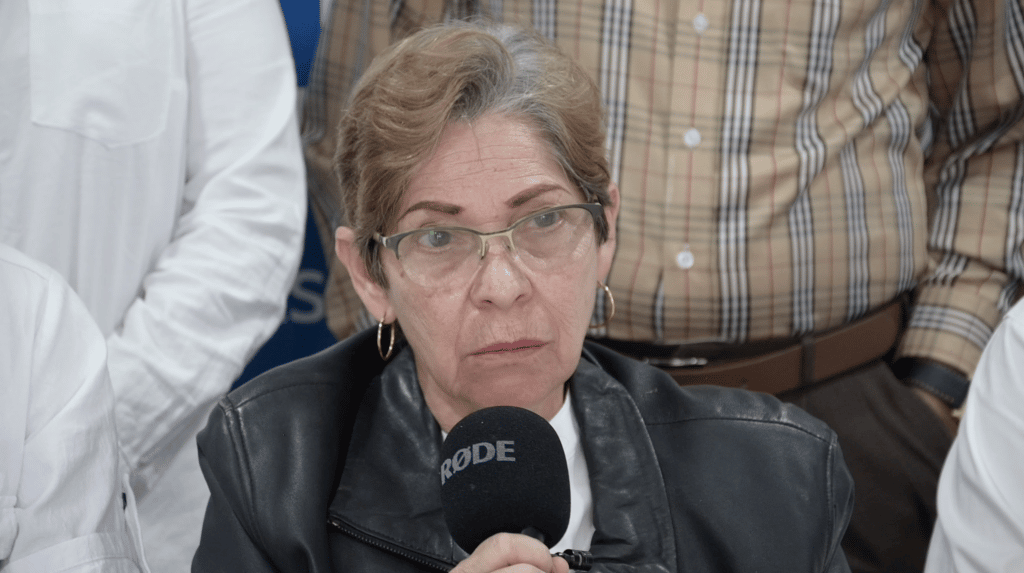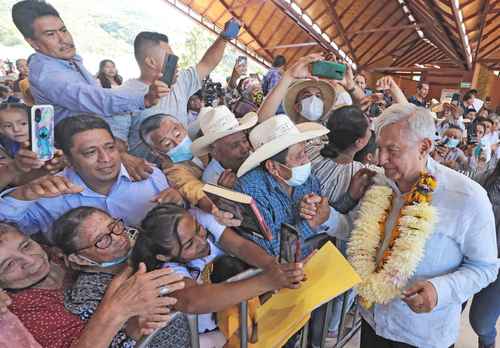Captive of uncertainty, more than 36 days after the arrest of Freddy Martín Porras García, a 51-year-old sales executive accused of conspiracy and spreading false news by the Nicaraguan dictatorship, exile could not have become more terrifying for four of her siblings, including opponent Dulce Porras.
Porras García celebrated his birthday on October 15 at the El Chipote police prison in Managua, a few days after the initial hearing of his case, held this Friday, October 21, between 2:00 p.m. and 7:00 p.m., which left many doubts between their exiled relatives and those who are in the country.
Although more than 24 hours have passed since the court session, at the time of this interview, there is very little information. Neither does Freddy Martín’s wife, whom Dulce Porras assures, was not even allowed to see her brother’s face, although she was in prison and wanted to accompany him to the hearing.
“They make you suffer through their (relatives’) suffering in jail. They are there in their hands (regime officials) ”, she lamented by telephone.
The case of this sales executive is registered under case number 021719-ORM4-2022-PN in the Sixth Criminal District Court of Hearing, in charge of Rolando Sanarrusia Munguia, who in early October took charge of the processing of 13 prisoners of conscience, including Porras, the family of Javier Álvarez Argüello—made up of his wife, daughter and son-in-law—and the son of the human rights activist and former program director from the Nicaraguan PEN group, Andrea Margarita del Carmen.
The three cases summarize the new modality of the regime: using the relatives of the politically persecuted as hostages to try to capture them.
Read: Andrea Margarita: “In El Chipote they said that my son would go free if he turned me in”
Dulce Porras, a former leader of the opposition party UNAMOS—former Sandinista Renovation Movement—in Carazo, indicated that her brother’s defense attorney was able to enter the hearing, speak with him for a few minutes, but they were left without knowing much about the immediate future. of the recluse in a kind of distressing limbo.
Over the judges, prosecutors and police officers, who make up the mechanism of repression against political prisonerss, the opponent has the worst of concepts. She describes all of them as officials who are capable of sustaining a lie and arrive at the hearings with the documents already done, just putting their name and surname on them. “That is the firing squad that the dictatorship has: the judges and prosecutors are accomplices of this barbarism,” she affirmed.
In the preliminary hearing, held on October 1, of which there is a record available, the defense then expressed the lack of certainty about the accusation of the prosecutor Carlos Rafael Espinoza Castilla, other executioners of prisoners of conscience in Nicaragua.
The public defender, who represented Porras García at the time, pointed out the lack of clarity around the fact that not even a telephone number was offered to ensure that there was a telephone call, a connection, nor an email or network accounts. social networks such as WhatsApp or Facebook, specific retweets or even a “like” to a publication that was seen as suspicious by the Public Ministry, “which is why this accusation should not be admitted.”
However, the court continued with a firm step in the process, increasing the pain of Porras and his three brothers living abroad, “because they are my brothers,” he explains. The defense is now in the hands of a private attorney.
Also: Relatives of political hostages of the regime demand: “Release them. They are innocent”
“What can they accuse my brother of? To be my brother! Ah, I accuse you because you are the brother of Dulce Porras, I accuse you because you are the brother of so-and-so. Yes, there are four of us in exile, but that is not a crime. The crime is committed by the dictatorship when it banishes us, steals everything from us, when it takes us out of our country. We do not commit it, ”he reiterated.
The opponent has been a victim of repression—they tried to burn her house in 2018—and she also witnessed the hard days suffered by the population of Carazo, between April and July of that same year, when Nicaragua knew the horror caused by the crimes of Condition.
Those were turbulent days in April 2018, when the population peacefully took to the streets throughout the country by the thousands to demand the resignation of Daniel Ortega and Rosario Murillo.
The opponents received as a response from the State a brutal repression at the hands of police and paramilitaries. The number of fatalities in Nicaragua, in the context of the demonstrations, totaled 355, in addition to 2,000 injured, according to the Inter-American Commission on Human Rights (IACHR).
The attacks of the repressive apparatus of the dictatorship on the population in the department of Carazo, located 30 kilometers from Managua, were incessant.
One of the bloodiest days occurred on July 8, 2018 when 22 people were murdered, which Dulce Porras assures should not be forgotten, although four years have passed since then.
To avoid being held accountable for these serious human rights violations, such as those that occurred in Carazo, the Ortega and Murillo regime affirmed without evidence that it was the target of a coup d’état contrary to the abuses documented by international organizations.
While the country began its fourth consecutive year living under a de facto police state last September, with the dictatorship firmly violating the right to protest, the civil rights situation continues to deteriorate. The total number of political prisoners increased to 219, including the sales executive Freddy Martín Porras.
















